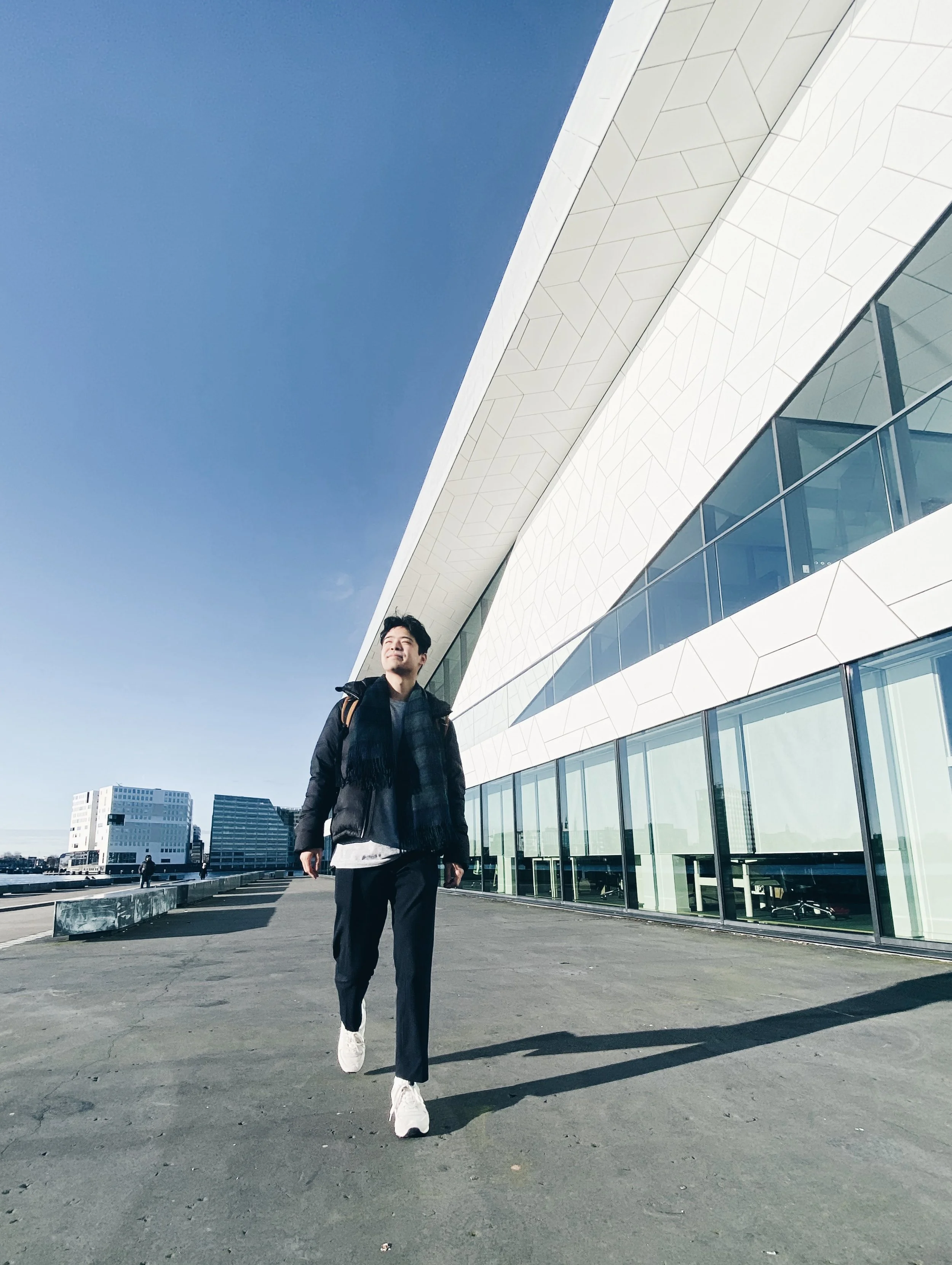
Taiki Papandreou Lazos
Taiki Papandreou Lazos on ‘The Future of Rāmen’
The Story of Taiki
Taiki Papandreou Lazos, a Japanese-Dutch student born in London, is passionate about rāmen dishes and their place in the urban food landscape. Having grown up in Japan and moving to the Netherlands, Taiki has seen first-hand how the rāmen industry has changed over the years. He is particularly interested in how rāmen businesses can create a sustainable future for rāmen, in cities such as Amsterdam, where the food scene is in constant flux.
Words: Yoshi Emanuël
Growing up, Taiki found Japanese cuisine to represent a simple yet abstract taste that leaves you with more to desire. “The taste of Japanese cuisine is often abstract,” he says, “it lacks a second taste, unlike many other foods which have an initial and secondary taste. I miss this in some Japanese dishes, though there are exceptions.” Rāmen, he says, is one of these exceptions. Taiki was eager to explore the challenge presented by the dish with its complex ingredients and intricate flavors. “Rāmen is a complex dish requiring a flavorful soup base and good noodles. Toppings are just a bonus. Many Japanese believe the soup and noodles encapsulate the true essence of rāmen. With its toppings, the combination creates something unique and compelling. That is something a professional chef would make.” He adds, “If you go to a rāmen restaurant, you can experience something more authentic than what you would make at home.”
In Taiki’s opinion, the sustainability challenges of rāmen cannot be solved by individual rāmen restaurant owners implementing sustainable policies. He believes that these challenges must be tackled on a larger scale and that open-minded approaches are the only way to truly solve the issue. Taiki also shared that, “not many activists are engaging in activism to fight the climate crisis in Japan, and there are no demonstrations. People believe that doing one's part, such as using fewer lights, conserving water, and reducing food waste is enough. This individualistic attitude is more prevalent than collective action. Japan as a whole is not a leader in sustainability, with no frontrunners.”
On a lighter note, Taiki insists that by sourcing ingredients locally, the authenticity of rāmen can be safeguarded. He believes that it should not matter who prepares the dish. “That is a philosophical question. How does one define authenticity? Is it authentic if it’s made by a Japanese person with Japanese ingredients? Maybe. But, a Dutch person could make better rāmen with local ingredients, which may not be authentic, but taste better. An open-minded approach to alternatives that focus on local harvesting and sustainability is important.” In addition, Taiki believes that the future of rāmen lies in how we approach sustainability. He believes that it is necessary to create a unified movement that is focused on sustainability, with everyone having a voice in the conversation.
One way that Taiki believes we can approach this problem is to create a network of green cities to further promote sustainability initiatives. This would involve a unified approach to sustainable policies, with city stakeholders sharing resources and ideas to create a network of sustainability-oriented cities. He believes that this could create a ripple effect and lead to more widespread adoption of sustainable practices within the urban food landscape.
Finally, Taiki believes that the future of rāmen lies in its ability to be innovative and creative. He believes that rāmen chefs should be open to experimenting with new ingredients and flavors in order to create exciting and unique dishes. He also suggests that rāmen restaurants explore collaborations with local businesses, such as breweries and coffee shops, in order to create an immersive dining experience that will appeal to a wider customer base.

Interested in more content? You can find EQ on:

